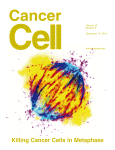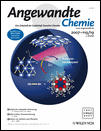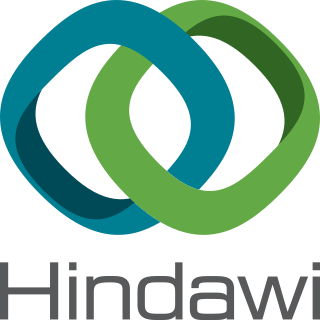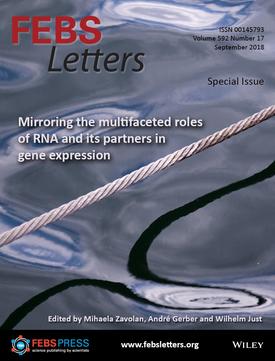
Cancer Cell is a peer-reviewed scientific journal scientific journal that publishes articles that provide major advances in cancer research and oncology. The journal considers manuscripts that answer important questions relevant to naturally occurring cancers. Areas covered include basic cancer biology, therapeutic development, translational research, cancer model development, multi-omics and computational biology. Cancer Cell is also interested in publishing clinical investigations, in particular those that lead to establishing new paradigms in the treatment, diagnosis, or prevention of cancers; those that provide important insights into cancer biology beyond what has been revealed by preclinical studies; and those that are mechanism-based proof-of-principle clinical studies.
A public health journal is a scientific journal devoted to the field of public health, including epidemiology, biostatistics, and health care. Public health journals, like most scientific journals, are peer-reviewed. Public health journals are commonly published by health organizations and societies, such as the Bulletin of the World Health Organization or the Journal of Epidemiology and Community Health. Many others are published by a handful of large publishing corporations that includes Elsevier, Wolters Kluwer, Wiley-Blackwell, Springer Science+Business Media, and Informa, each of which has many imprints. Many societies partner with such corporations to handle the work of producing their journals.

Angewandte Chemie is a weekly peer-reviewed scientific journal that is published by Wiley-VCH on behalf of the German Chemical Society. Publishing formats include feature-length reviews, short highlights, research communications, minireviews, essays, book reviews, meeting reviews, correspondences, corrections, and obituaries. This journal contains review articles covering all aspects of chemistry. According to the Journal Citation Reports, the journal had a 2021 impact factor of 16.823.

Hindawi is a publisher of peer-reviewed, open access, scientific journals currently active in scientific, technical, and medical (STM) literature. It was founded in 1997 in Cairo, Egypt, but purchased in 2021 by John Wiley & Sons, a publishing company based in the United States. The company has its headquarters in London, an office in Cairo, and a virtual office address in New York City.

PLOS One is a peer-reviewed open access mega journal published by the Public Library of Science (PLOS) since 2006. The journal covers primary research from any discipline within science and medicine. The Public Library of Science began in 2000 with an online petition initiative by Nobel Prize winner Harold Varmus, formerly director of the National Institutes of Health and at that time director of Memorial Sloan–Kettering Cancer Center; Patrick O. Brown, a biochemist at Stanford University; and Michael Eisen, a computational biologist at the University of California, Berkeley, and the Lawrence Berkeley National Laboratory.

The Annual Review of Ecology, Evolution, and Systematics is an annual scientific journal published by Annual Reviews. The journal was established in 1970 as the Annual Review of Ecology and Systematics and changed its name beginning in 2003. It publishes invited review articles on topics considered to be timely and important in the fields of ecology, evolutionary biology, and systematics. As of 2022, Journal Citation Reports gave the journal a 2021 impact factor of 14.340, ranking it third of 173 journals in the "Ecology" category and third of 51 journals in "Evolutionary Biology".

Infection and Immunity is a peer-reviewed medical journal published by the American Society for Microbiology. It focuses on interactions between bacterial, fungal, or parasitic pathogens and their hosts. Areas covered include molecular pathogenesis, cellular microbiology, bacterial infection, host responses and inflammation, fungal and parasitic infections, microbial immunity and vaccines, and molecular genomics. The journal publishes primary research articles, editorials, commentaries, minireviews, and a spotlight report highlighting articles of particular interest selected by the editors. Articles are freely accessible after 6 months. Through its "Global Outreach Program," free online access is available to qualified microbiologists in eligible developing countries.
The Journal of Endocrinology is a monthly peer-reviewed scientific journal that publishes original research articles, reviews and commentaries. Its focus is on endocrine physiology and metabolism, including hormone secretion, hormone action, and biological effects. The journal considers basic and translational studies at the organ and whole organism level.

Journal of General Virology is a not-for-profit peer-reviewed scientific journal published by the Microbiology Society. The journal was established in 1967 and covers research into animal, insect and plants viruses, also fungal viruses, prokaryotic viruses, and TSE agents. Antiviral compounds and clinical aspects of virus infection are also covered.

A review article is an article that summarizes the current state of understanding on a topic within a certain discipline. A review article is generally considered a secondary source since it may analyze and discuss the method and conclusions in previously published studies. It resembles a survey article or, in news publishing, overview article, which also surveys and summarizes previously published primary and secondary sources, instead of reporting new facts and results. Survey articles are however considered tertiary sources, since they do not provide additional analysis and synthesis of new conclusions. A review of such sources is often referred to as a tertiary review.
MDPI is a publisher of open access scientific journals. Founded by Shu-Kun Lin as a chemical sample archive, it now publishes over 390 peer-reviewed, open access journals. MDPI is among the largest publishers in the world in terms of journal article output, and is the largest publisher of open access articles.

FEBS Letters is a not-for-profit peer-reviewed scientific journal published on behalf of the Federation of European Biochemical Societies (FEBS) by Wiley. It covers all aspects of molecular biosciences, including molecular biology and biochemistry. The aim of the journal is to publish primary research in the form of Research Articles, Research Letters, Communications and Hypotheses, as well as secondary research in the form of Review articles. The journal also publishes a News and Views column called "The Scientists' Forum". The editorial office of FEBS Letters is based in Heidelberg, Germany. The journal income is reinvested in science.
David Leslie Hawksworth is a British mycologist and lichenologist currently with a professorship in the Universidad Complutense de Madrid in Madrid, Spain and also a Scientific Associate of The Natural History Museum in London. In 2002, he was honoured with an Acharius Medal by the International Association for Lichenology. He married Patricia Wiltshire, a leading forensic ecologist and palynologist in 2009. As of 2022, he is the Editor-in-Chief of the journals IMA Fungus and Biodiversity and Conservation.
Frontiers Media SA is a publisher of peer-reviewed, open access, scientific journals currently active in science, technology, and medicine. It was founded in 2007 by Kamila and Henry Markram, and has since expanded to other academic fields. Frontiers is based in Lausanne, Switzerland, with other offices in London, Madrid, Seattle and Brussels. In 2022, Frontiers employed more than 1,400 people, across 14 countries. All Frontiers journals are published under a Creative Commons Attribution License.
Alastair Culham is an English botanist. He is a member of the staff of the School of Biological Sciences at the University of Reading and Curator of the University of Reading Herbarium (RNG). He specialises in plant taxonomy, biosystematics and applications of techniques from molecular biology, phytogeography and phylogenetics. He focuses on broad-based research in biodiversity and taxonomy.
The Journal of Molecular Endocrinology is a peer-reviewed scientific journal published eight times per year. Its focus is on molecular and cellular mechanisms in endocrinology, including gene regulation, cell biology, signalling, mutations and transgenesis.
Wenying Zhuang is a Chinese mycologist. She is known for her contributions to the study of species diversity and phylogeny of Ascomycetes.
Photonic Sensors is an international journal and has been available online as an Open Access publication since 2011. It is co-published quarterly by the University of Electronic Science & Technology of China (UESTC) and Springer. Photonic Sensors publishes original, peer-reviewed articles that report on new developments of interest to members of the photonics and sensor communities in all fields of photonic-sensing science and technology, including but not limited to topics on:
Pedro Willem Crous is a South African mycologist and plant pathologist.

Jean-Lou Justine, French parasitologist and zoologist, is a professor at the National Museum of Natural History in Paris, France, and a specialist of fish parasites and invasive land planarians.









